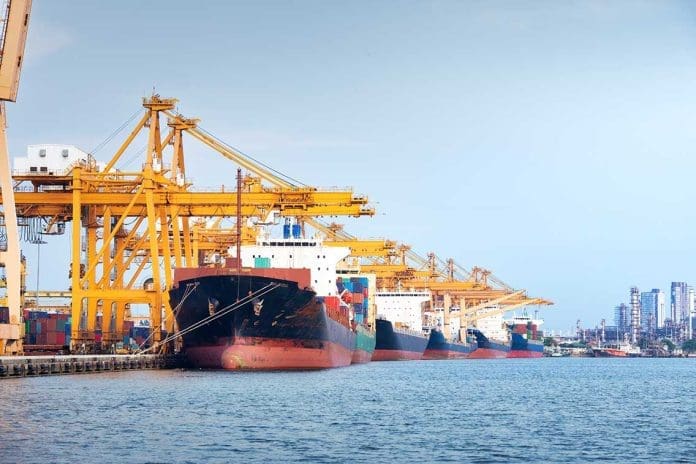Ghana’s business leaders are increasingly viewing the African Continental Free Trade Area as essential protection against global trade shocks, according to a comprehensive survey of over 2,000 African executives released this week. The finding carries particular weight as Ghana faces renewed tariff pressures following August adjustments by the United States that left the country among the seven worst-hit African nations.
The PAFTRAC Africa CEO Trade Survey Report 2025, released alongside the World Trade Organization Public Forum, captures a continent recalibrating its trade strategy amid unprecedented volatility. Nearly 98 percent of respondents rated the AfCFTA as crucial for safeguarding Africa’s trade interests, with more than half calling it extremely important. This near-unanimous sentiment reflects a strategic shift toward regional resilience as external markets grow unpredictable.
Ghana’s presence throughout the report underscores local relevance. The country appears among top trading destinations for African exports and imports, while participating actively in the Guided Trade Initiative since its 2022 launch in Accra itself. Yet the data also highlights an uncomfortable reality for Ghanaian businesses: many remain unaware of mechanisms designed to help them navigate this new trading landscape.
The tariff pressures facing Ghana and six other African countries in August represent a tangible challenge captured in the survey’s timeframe. Respondents described a world where US protectionism under the current administration has disrupted supply chains and forced companies to reconsider established trading relationships. This environment paradoxically strengthens the case for intra-African commerce, where risks are more calculable and relationships more stable.
Intra-African trade rebounded sharply in 2024, climbing 12.4 percent to reach $220.3 billion after a decline the previous year. This turnaround, while encouraging, still leaves regional trade at just 14.4 percent of Africa’s total formal trade, meaning most African commerce flows outward rather than internally. For Ghana, a nation with manufacturing capability and port infrastructure, the opportunity to capture greater share of that 220 billion dollar market remains largely untapped.
The survey reveals a paradox that directly affects Ghanaian entrepreneurs. While 98 percent of executives believe the AfCFTA matters, awareness of specific tools designed to facilitate trade remains surprisingly low. Just 25.24 percent of respondents said they actively benefit from AfCFTA tariff preferences, though another 30.29 percent plan to do so soon. More troubling, 21.17 percent reported not knowing the preferences existed at all. Ghana’s SME sector, which comprises roughly 90 percent of businesses on the continent, faces particular disadvantages navigating these gaps.
Digital transformation emerges as another critical factor shaping Ghana’s trade future. The survey found 53.64 percent of African firms now use digital payment systems, yet high implementation costs remain prohibitive for smaller enterprises. Ghana can influence this trajectory given its position as a tech hub and the expansion of systems like the Pan-African Payment and Settlement System (PAPSS), which now links 18 central banks and 150 commercial banks across Africa. Yet only 60 percent of respondents knew PAPSS existed two years ago, compared to much higher awareness today, suggesting promotion and adoption remain ongoing challenges.
Sustainability also figured prominently in executive thinking, with 98 percent rating green business practices as central to future competitiveness. Ghanaian companies exporting agricultural goods, services, and manufactured products increasingly face international demand for environmental credentials. The report suggests businesses prioritizing sustainable energy solutions and reducing carbon emissions gain advantages in accessing both regional and global markets.
What strikes observers is the timing of this strategic pivot. Global trade uncertainty has pushed African businesses toward each other almost by necessity rather than preference. Geopolitical tensions, shipping route disruptions, and tariff wars have made external markets less dependable. Simultaneously, the AfCFTA infrastructure continues expanding with new tools and mechanisms becoming operational throughout 2025.
For Ghana specifically, the implications run deep. The country’s port infrastructure, growing digital sector, and manufacturing base position it well to become a regional trade hub under AfCFTA preferences. Yet this requires businesses to understand and access mechanisms that remain inadequately promoted. The gap between near universal recognition that the AfCFTA matters and actual operational engagement with its tools represents both a challenge and an opportunity.
The survey captured respondents during a moment of genuine disruption. US tariff announcements dominated headlines, multilateral trade systems appeared fragile, and African businesses faced questions about their trading futures. Against this backdrop, nearly all opted for regional resilience over external dependence. Whether that sentiment translates into actual behavior and business practice will become clearer as 2026 approaches. For Ghana’s trade sector, the next chapter depends on closing the awareness gap and building capacity among smaller firms to participate in the continental market that AfCFTA promises.
Source: newsghana.com.gh











